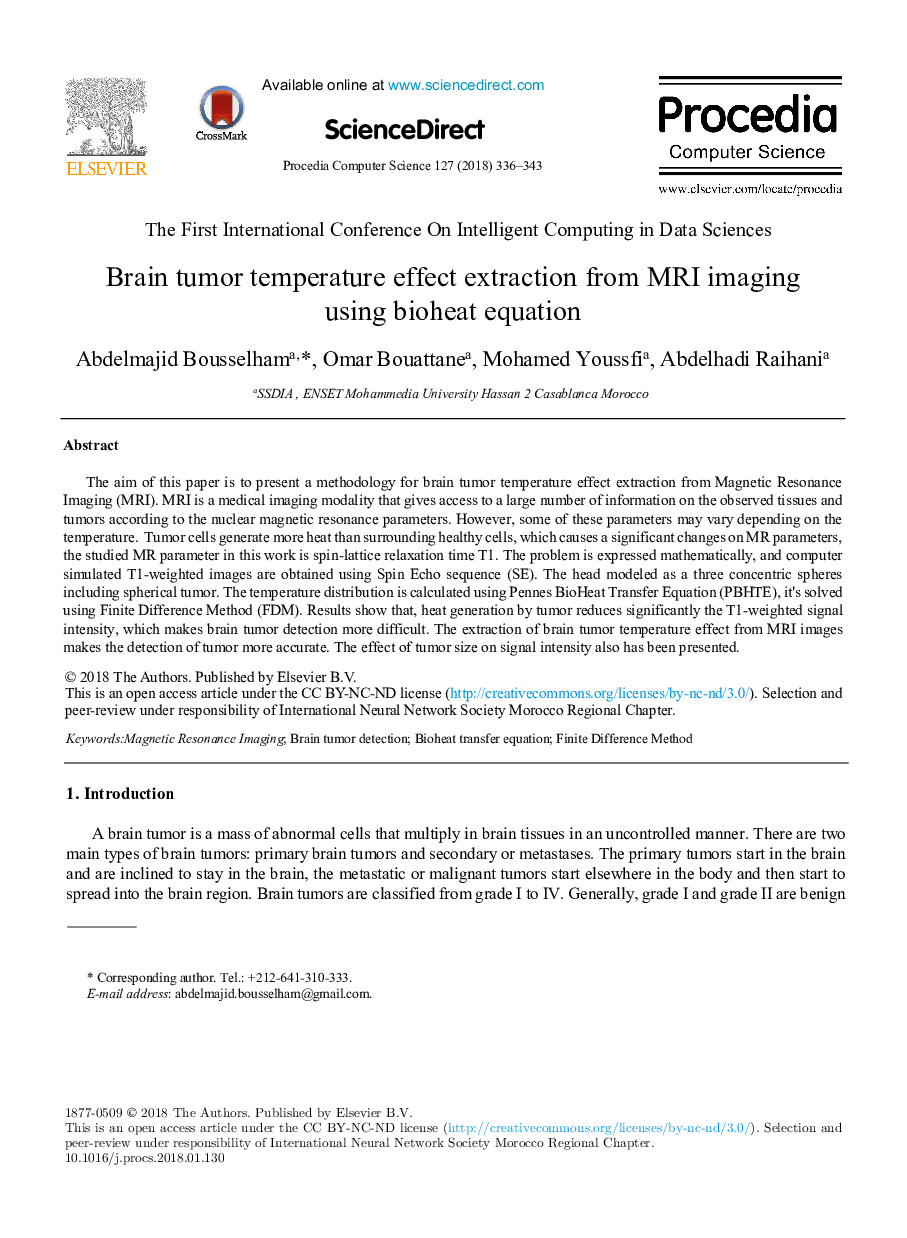| Article ID | Journal | Published Year | Pages | File Type |
|---|---|---|---|---|
| 6900488 | Procedia Computer Science | 2018 | 8 Pages |
Abstract
The aim of this paper is to present a methodology for brain tumor temperature effect extraction from Magnetic Resonance Imaging (MRI). MRI is a medical imaging modality that gives access to a large number of information on the observed tissues and tumors according to the nuclear magnetic resonance parameters. However, some of these parameters may vary depending on the temperature. Tumor cells generate more heat than surrounding healthy cells, which causes a significant changes on MR parameters, the studied MR parameter in this work is spin-lattice relaxation time T1. The problem is expressed mathematically, and computer simulated T1-weighted images are obtained using Spin Echo sequence (SE). The head modeled as a three concentric spheres including spherical tumor. The temperature distribution is calculated using Pennes BioHeat Transfer Equation (PBHTE), it's solved using Finite Difference Method (FDM). Results show that, heat generation by tumor reduces significantly the T1-weighted signal intensity, which makes brain tumor detection more difficult. The extraction of brain tumor temperature effect from MRI images makes the detection of tumor more accurate. The effect of tumor size on signal intensity also has been presented.
Keywords
Related Topics
Physical Sciences and Engineering
Computer Science
Computer Science (General)
Authors
Abdelmajid Bousselham, Omar Bouattane, Mohamed Youssfi, Abdelhadi Raihani,
